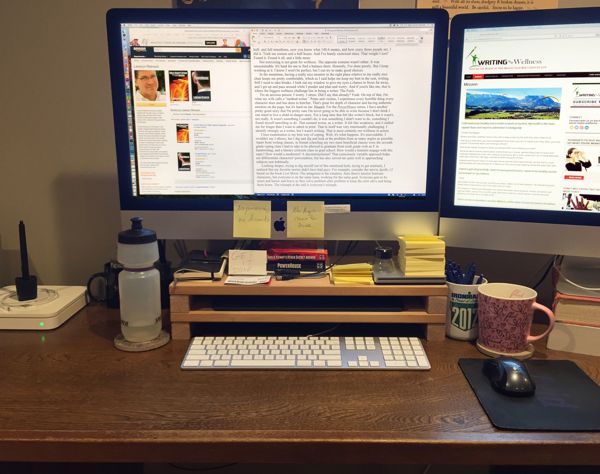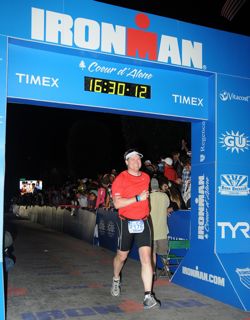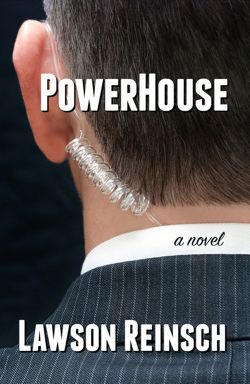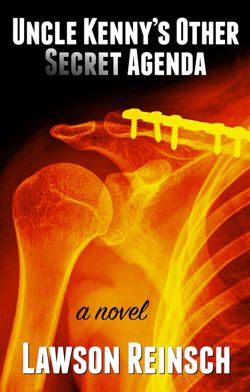“The perfect is the enemy of the good.”
In writing and in life, I have to remind myself of that fairly often. Do the best you can and don’t worry about it beyond that.
But I worry. I stress. There’s no shortage of things to fret about. From the purely physical to the all-in-our heads emotional, wellness can definitely be a challenge.
If we’re going to look at that gamut, let’s start with the easiest: the physical.

Put Your Monitor in the Right Place to Avoid Eyestrain
As artists, I think writers are fairly lucky with regard to the physical work environment. Dancers get injured like athletes in contact sports. Painting seems pretty innocuous, but Caravaggio (pictured at right) had enough lead in his system to drive him insane.
But we writers—if we set up our battle stations with proper ergonomics—we can protect ourselves pretty well.
The biggest physical challenge I face as a writer is eye-strain.
To help with that, I work on an iMac with a 27” retina screen. It’s beautiful. If you have to stare at a monitor, that’s about as good as it gets.
But it also has to be in the right place. Because I’m tall and sit taller due to an extra-long torso, I built a wooden stand to raise the computer almost five inches.
That puts the top of the screen even with my eyes when I’m sitting properly.

And to sit properly, in a healthy, sustainable posture, I use a Herman Miller Aeron chair. It’s highly adjustable, provides great support, and its mesh fabric breathes well.
I run hot; I’m the guy wearing shorts all winter. So the Aeron helps me stay cool and comfortable. And with the chair adjusted correctly, and the computer in the right place relative to it, the system as a whole helps me avoid physical strain. That in turn helps me keep my butt in the seat.
Struggling with a Sweet Tooth
System is an important concept here. I set up my work space and now I almost don’t have to think about it. It’s designed to be self-reinforcing, automatic, so I’m not making choices to sit in a healthy way, I just am.
But that’s exactly the way that a diet, another system, does not work for me. I have a sweet tooth. (Maybe all thirty-two.) I always want soda and ice cream and candy bars and pretty much anything that’s mostly sugar. Eating right—dietary wellness—is a choice that’s always hard for me, and trying to build good habits, setting up a system, feels very much like I’m depriving myself, denying myself, putting myself on lock down.
It’s no fun.
I can do it. It’s just not fun.

I Lost the Weight in an Ironman—and Then Found It Again
In 2011, I lost a bunch of weight, trained twenty-five hours a week for over a year, and in 2012 finished an Ironman triathlon.
That’s a 2.4-mile swim followed by biking 112 miles (that’s not a typo, that’s a hundred and twelve miles pedaling a bicycle), all as a warm-up for running a full forking marathon.
If you’ve seen those white oval stickers on cars with 13.1 and 26.2 for half and full marathons, now you know what 140.6 means, and how crazy those people are.
I did it. Took me sixteen and a half hours. And I’ve barely exercised since.
That weight I lost? Found it. Found it all, and a little more.
Not exercising is not great for wellness. The opposite extreme wasn’t either. It was unsustainable.
It’s hard for me to find a balance there. Honestly, I’ve done poorly. But I keep working at it. I know I won’t be perfect, but I can try to make good choices.
In the meantime, having a really nice monitor in the right place relative to my really nice chair keeps me pretty comfortable, which as I said helps me keep my butt in the seat, writing. Still I need to take breaks. I look out my window to give my eyes a chance to focus far away, and I get up and pace around while I ponder and plan and worry.
And if you’re like me, that is where the biggest wellness challenge lies in being a writer: The Feels.
I Experience Every Horrible Thing Every Character Does
I’m an anxious person. I worry. I stress. Did I say that already? Yeah. On top of that, I’m what my wife calls a “method writer.”
Perps and victims, I experience every horrible thing every character does and has done to him/her. That’s great for depth of character and having authentic emotion on the page, but it’s hard on me. Haaard.
For the PowerHouse series, I have another pretty good story that I’m pretty sure I’m never going to be able to write because I don’t think I can stand to live a child-in-danger story. For a long time that felt like writer’s block, but it wasn’t, not really. It wasn’t something I couldn’t do, it was something I didn’t want to do, something I found myself unwilling to do.
That seemed worse, as a writer. It felt like weakness, and it stalled me for longer than I want to admit in print.
That in itself was very emotionally challenging. I identify strongly as a writer, but I wasn’t writing. That is most certainly not wellness in action.
My Favorite Stories Didn’t Have Bad Guys
Close examination is my best way of coping. Well, it’s what happens. It’s unavoidable. I wouldn’t say I obsess, but I dig and dig and look at the problem from as many angles as possible.
Apart from writing classes, in formal schooling my two most beneficial classes were the seventh grade typing class I had to take to be allowed to graduate from sixth grade with an F in handwriting, and a literary criticism class in grad school.
How would a feminist engage with this topic? How would a modernist? A deconstructionist? That consciously variable approach helps me differentiate characters’ personalities, but has also served me quite well in approaching subjects non-habitually.
Looking deeper, trying to dig myself out of this emotional hole, trying to get unstuck, I realized that my favorite stories didn’t have bad guys. For example, consider the movie Apollo 13 based on the book Lost Moon. The antagonist is the situation.
Sure there’s tension between characters, but everyone is on the same team, working for the same goal. Everyone gets to be smart and heroic and brave as they solve problem after problem to keep the crew alive and bring them home.
The triumph at the end is everyone’s triumph.

The Solution Was to be True to Myself
So that was a conclusion, but not necessarily a solution.
The solution was to be true to myself.
I could fight against my own nature and force myself to write a book I wouldn’t want to read, just to fill out a trilogy. Or I could let that go.
The duology is complete as is. I like and am proud of PowerHouse and Uncle Kenny’s Other Secret Agenda. Each stands alone and both have won contests. I’ve reread both since publication and enjoyed them. That feels good.
But that third book chronologically between them? Probably not going to happen. Not anytime soon. Instead, in the interest of my own emotional wellness, I’m finally allowing myself to move on and invest my time and enthusiasm in a story that suits me.
Don’t get me wrong; puppies and rainbows do not good fiction make. So the stakes are high, awful things happen, and there’s still a body count. But it’s woman versus environment, and I get to cheer for everybody. And that feels better. A lot better.
Choosing projects that suit you is a great way to avoid getting off track.
Sometimes Even “Good” Disappears Over the Horizon
Soon enough, though, I’ll finish this story and have to face one of the other great emotional challenges of being a writer: heave my baby out into the world for people to throw rocks at or scoop up and smother with kisses.
That one’s harder to cope with.
I wish it weren’t.
As Robert Hughes said in Time Magazine,
“The greater the artist, the greater the doubt; perfect confidence is granted to the less talented as a consolation prize.”
I’m not claiming to be a great artist, but confidence is another area where I am so far from perfect that sometimes even good disappears over the horizon.
As I write this, PowerHouse has 4.9 stars on Amazon. That’s great. And it just won first place in the Writer’s Digest Self-Published eBook awards, for genre fiction. (PowerHouse is a thriller, but Writer’s Digest’s genre category covered all adult genres inclusively.)
Hurray.
And Uncle Kenny’s Other Secret Agenda was just announced as a finalist for the Nancy Pearl Book Award. Awesome.
But a single bad review on another site kills me a little every time I think about it. About once a week. Pow. Out of nowhere. Pow. Feeling good? Pow. Feeling confident? Pow.
Those are some truly dark moments. They do not feel like I’m achieving wellness.
I definitely don’t need everyone to like my work. I’d be a fool to expect that. And I’m careful to remember—once I calm myself down—that one review is one review, and more importantly that one piece of my writing is not all of my work, and even more importantly that my work is not me and ultimately does not determine my value.
And that does feel like wellness.
Stories are Gifts: Share
My single greatest challenge is self-promotion. I do not like it.
Depending on timing of posting, this feature may be my first public mention of the Writer’s Digest win. And the Nancy Pearl nod. Even on Facebook.
I’m just not at all about self-promotion. I’m about doing good work, writing the best book I can, something I’m proud of. That’s what’s gratifying to me. That’s what’s always kept me going through the rough patches in writing and revising.
Write a good book. Do good work. I care about that. Deeply.
I don’t really care about sales because I don’t really care about the money. I do recognize that I should care more about sharing the stories. I think they’re good. Most people respond very positively. I did write them for me, but there’s no upside to keeping them to myself.
Ha! I have on my office wall a cut-out section of shopping bag on which is printed, “Stories are Gifts. Share.” I like that. I liked it enough that I hung it on my wall. But I forgot where it came from.
Ten seconds of research just now has told me it’s from a Starbucks bag, of all things. That’s fine. They’re very good at making a very large number of people very happy on a regular basis. Popularity doesn’t automatically diminish quality. Share.
Writing Chooses Us
So, hey, yeah. Buy my books. The e-versions are just a buck through the end of the summer. If you like them, tell your friends. Buy the paperbacks and pass them around.
If you like the stories, or the people living them, throw me some stars. Or send me an email. I’m easy to find if you’re not a robot. And if you’ve read this far, you’re not a robot. You want to connect. Even if you’re shy, introverted, quiet. Me too. Even if you’re scared. Me too. It’s okay. We’re okay.
I’ve been extremely fortunate my whole life to have family and friends who are supportive of my creative endeavors. I think writing chooses us, not the other way around. It’s a compulsion.
It’s so hard to do well, as well as we’d like, that any sane person would quit if that were realistically an option.
Advice to a Young Writer: Keep In Mind that Perfection is Unattainable
Advice to a young person thinking about being a writer? If you don’t have to write, don’t. But if you have to—and you’ll know if you do—treat writing with respect. It’s still going to beat you up, but you’ll be off your back sooner. In the meantime, be kind, to yourself and to others. Be honest and vulnerable or you’ll just be hiding your interesting truths.
Strive for excellence, but be gentle with yourself and keep in mind that perfection is unattainable, and the perfect truly is the enemy of the good.
And finally, enjoy. Writing. Life. Both are hard work, but so rewarding. Engage. Explore. Work hard and do your best. Believe in yourself. Remember the pleasure of doing what you love and hold on to that joy.
Sometimes that’s all you get, but I think you’ll find that can be good enough.
* * *
Lawson Reinsch lives just outside Seattle with his wife Judy, one feline allergy bag, and two of the most ridiculous five-pound dogs on the planet. He’s a Second City grad and a fat Ironman.
For more information about the author and his work, please see his website, or follow him on Twitter.
 PowerHouse: Cybersecurity expert Paul Stockton has enough of his own damn problems, thank you very much. But now his brother Sam—an ex-operative with a genius for all things violent—is framing him for a series of political assassinations that would make their father president.
PowerHouse: Cybersecurity expert Paul Stockton has enough of his own damn problems, thank you very much. But now his brother Sam—an ex-operative with a genius for all things violent—is framing him for a series of political assassinations that would make their father president.
Caught on the itchy side of investigators’ scrutiny, Paul has no choice but to go after Sam himself. Great. Who better to stop the guy who can do a hundred push-ups than the guy who types a hundred words a minute?
From Seattle to L.A. to D.C., the hunt is on, the clock is ticking, and the bodies would be piling up if they weren’t being blown in all directions. And though Paul does recruit the unlikeliest of allies, he alone must decide what he’s willing to sacrifice–for the people he loves, for his own redemption, and to save the lives of untold thousands.
Available at Amazon, Barnes & Noble, and Powell’s.
 Uncle Kenny’s Other Secret Agenda: A quirky, darkly funny thriller about Paul Stockton, a 13-year-old college freshman squirming under the thumb of a narcissistic U.S. Senator father and a cold, disapproving mother.
Uncle Kenny’s Other Secret Agenda: A quirky, darkly funny thriller about Paul Stockton, a 13-year-old college freshman squirming under the thumb of a narcissistic U.S. Senator father and a cold, disapproving mother.
Throw in OCD and a psychopath brother, and his home life is an exercise in survival. Paul wants out. Stealing his father’s stolen campaign funds could help–if he can keep the money.
But there are greater costs to vanishing into an assumed identity. And in the meantime, can Paul stop Uncle Kenny’s other secret agenda?
Available at Amazon, Barnes & Noble, and Powell’s.


I enjoyed this post! I am currently struggling to find the right space in my new house to write in. The couch? The dining room table? The desk that doesn’t fit anywhere but the spare bedroom? I like the focus you put on your posture and eye-strain prevention. It’s an important investment I will need to make. I’ll have to find that perfect spot soon.
I also loved your realization on the emotional toll writing can take. I’m about to do something awful to my MC and I’m procrastinating. I don’t want to do it. I fear that it won’t have the emotional punch if I skirt the pain I know she must feel to tell a compelling story. I know that some 5 a.m. writing session, with snow falling or leaves rustling outside my windows, I’ll destroy her- only to rebuild her on the other side. But I do have to want it bad enough. Your post reminded me that her story will come, if I let it unfold when I’m ready. It’s not just her journey, it’s mine too.